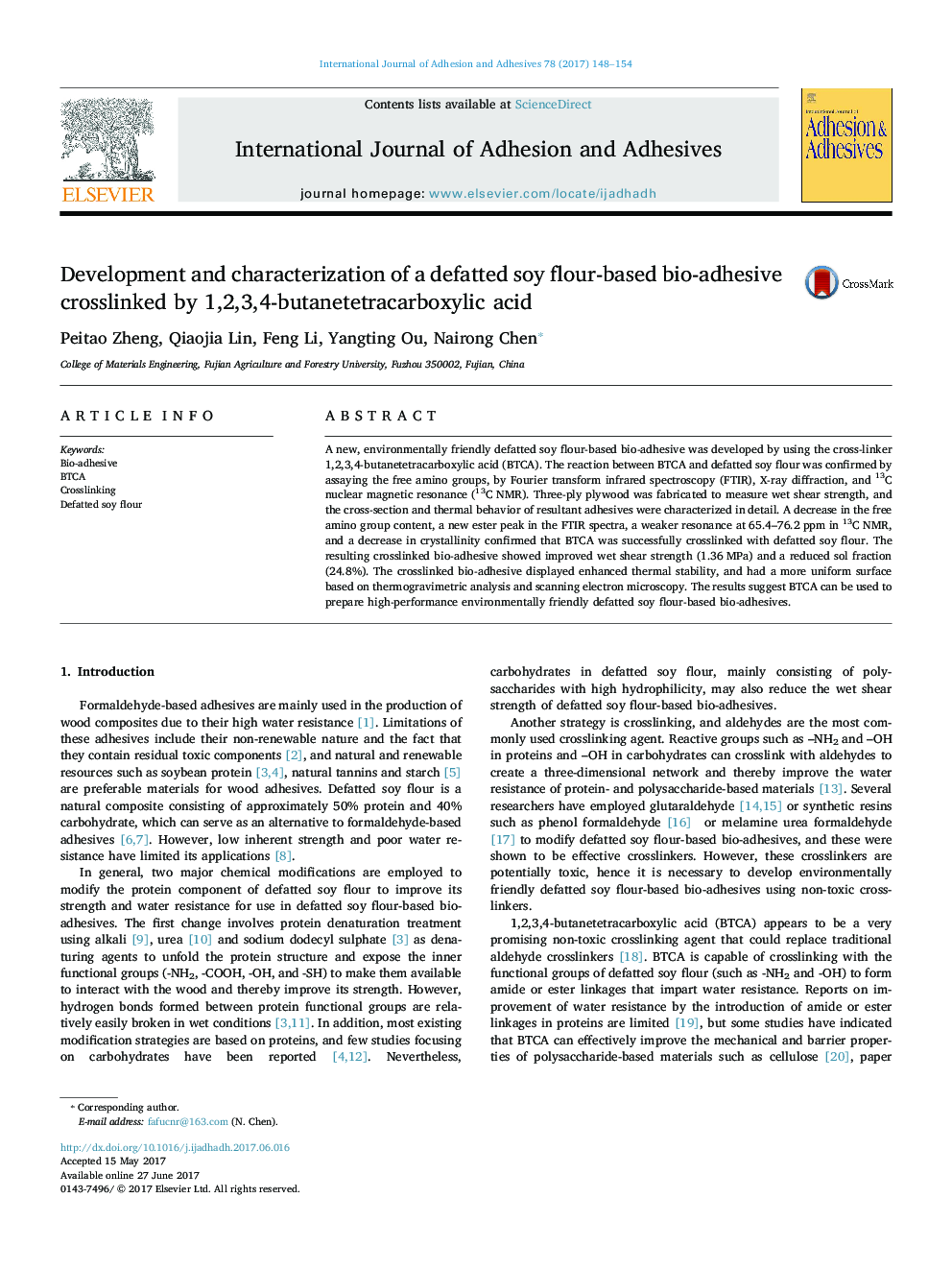| Article ID | Journal | Published Year | Pages | File Type |
|---|---|---|---|---|
| 5014775 | International Journal of Adhesion and Adhesives | 2017 | 7 Pages |
Abstract
A new, environmentally friendly defatted soy flour-based bio-adhesive was developed by using the cross-linker 1,2,3,4-butanetetracarboxylic acid (BTCA). The reaction between BTCA and defatted soy flour was confirmed by assaying the free amino groups, by Fourier transform infrared spectroscopy (FTIR), X-ray diffraction, and 13C nuclear magnetic resonance (13C NMR). Three-ply plywood was fabricated to measure wet shear strength, and the cross-section and thermal behavior of resultant adhesives were characterized in detail. A decrease in the free amino group content, a new ester peak in the FTIR spectra, a weaker resonance at 65.4-76.2Â ppm in 13C NMR, and a decrease in crystallinity confirmed that BTCA was successfully crosslinked with defatted soy flour. The resulting crosslinked bio-adhesive showed improved wet shear strength (1.36Â MPa) and a reduced sol fraction (24.8%). The crosslinked bio-adhesive displayed enhanced thermal stability, and had a more uniform surface based on thermogravimetric analysis and scanning electron microscopy. The results suggest BTCA can be used to prepare high-performance environmentally friendly defatted soy flour-based bio-adhesives.
Related Topics
Physical Sciences and Engineering
Engineering
Mechanical Engineering
Authors
Peitao Zheng, Qiaojia Lin, Feng Li, Yangting Ou, Nairong Chen,
